His pallor craved the sun and wind, like any living soul, and his lungs grew greedy for the fresh air, moist with dew of the valley and spiced with the pungence of the forest’s tree bark and herbs. Zhuel often gazed longingly outside the library windows onto the valley before him. And here, he added the great land to another expanse he sojourned into, free from people’s demands and disdain.
Despite his mother’s wariness he might harm his health, Zhuel befriended the palace’s own Master of the Horses. Zhuel, at 10 summers years old, first learned riding. He struck a silent friendship with his first horse, a gentle palfrey of a dappled grey with black spots named Nezhni.
Having foaled the winter before, Nezhni sensed the little boy before her, fumbling to mount the stirrups and seat himself in her saddle, was certainly a foal himself, only human. She took gently to Zhuel, often greeting him with bent neck over the stable door and whinnying softly at him. She took care to still her own spooks when he tumbled about, pulled her on reins a bit too hard in his own inexperience, and stood stone-still as he clumsily clambered onto her back. He was, she reasoned, a faltering, knobby-kneed little foal himself.
Animals, Zhuel found, possessed more sense than people at times, and he also found sensible companionship in a falcon the palace’s falcon-master gave him for his 12th year.
Zhuel named the fledging Skoro, and he felt a commonality with the young falcon. Skoro, with his dark shining beads of eyes, gazed cynically and questioning at everyone, even Zhuel at first. Zhuel liked this about Skoro, and perhaps the falcon sensed the same of his new master, for the two grew inseparable.
Skoro enjoyed his master’s company, for Zhuel always let his tether out the longest, nor did Zhuel demanded prey each time he’d let Skoro soar. Zhuel indulged Skoro with tender meat morsels the prince purloined from the kitchen pantry, and Skoro savored his lot in his hawkish life.
Zhuel demanded little from his friends, for they demanded nothing of him. They talked silently, so did he. They criticized him not, so he neither did he of them.
Skoro tolerated Nezhni, and in turn, the palfrey grew accustomed to the arrogant falcon. She found him arrogant because he always roosted high on tree branches rather than stay on the ground like a humble creature, Neznhi thought, in her horse’s logic.
But Zhuel was not a foal, nor was he a falcon’s fledgling- he yearned for a friend of his own kind, a human one.
And on the Summer he turned 10 years of age, an emissary and his son arrived in Queen Rukhel’s court.
*****************
A sliver of light cracked through an opening fold of the window’s drape.
The boy stirred, wincing from the sting of dawn’s light onto his eyes. He rose, rubbed the sleep from his eyes, and set forth into the day.
He was tall for his age- about a head taller. His shoulders already boasted a premature broader that surpassed his peer, and lent itself the impression he should grow to become a man of a mighty frame.
But his size mismatched his own self, for the lad felt small inside himself. He felt he himself were pressed down smaller by the hardness of the life his father and forefathers set before him.
Soon, he knew, he would leave the familiarity of studying and libraries, and cast aside the boyish joys of leisure. He would take up the lance and learn the art of combat. He knew every soul he encountered would not be a future friend, but chance foe.
Lamenting his future, the boy resigned himself to gloom, and when his father took up an emissary position so that he, the son, should learn the tongue and the style of battle of this land and people, the boy felt hollowed out by this expectation.
Attired for the day, befitting an emissary’s son in a foreign royal court, the lad emerged from his chamber and sought his father.
A low rumble of men’s voice, accentuated by a woman’s clarion tone spilled from the great hall. The lad realized his father now took court with the land’s sovereign queen and her court.
He questioned if this would concern him, so he slipped into the great council chamber.
He felt smaller, overshadowed by the splendor of the chamber and its arching ceiling, almost mountainous. But the circle of his father, a straight-backed, proud man, enthronged by the other royal court members in the queen’s audience, made the lad feel all the smaller.
And out of place.
Only Queen Rukhel noted the lad, shifting from foot to foot, scuffing the toe of his shoe uneasily on the marble floor.
There was no severity, but a softening came over the Queen’s usual lines of sternness and authority. The lad appeared the age nearest to her own son, and her mother’s self emerged for a brief second.
The emissary noted the Queen’s distraction, and glancing over his shoulder, he caught of his son. He shook his head curtly in reproach.
“You should have summoned a servant to announce your arrival in the court, my son. The Queen may think we hail from an uncouth kingdom with your familiarity.” came his father’s terse reproach.
The lad felt himself shrink, and he slowly backed over the threshold of the door. He wanted to dash off and escape the upbraiding of his father, and the peering glares from the court, but the Queen held her hand up.
“No need to scold your son so, Emissary Dastgir. He seems to be seeking your approval.” The Queen quelled the curtness of the lad’s father. She turned her eyes onto the lad again, nodding knowingly. “It’s not time yet for you, nor my son, to concern yourselves over the trite affairs we mull over today. Go out into the courtyard and find my son. You two might make good use of the day- he’s fond of his horse and hawk- he might race with you if you ask for a steed.”
Relieved he could escape the court, the lad was grateful for the Queen’s kind offer. He went to run off, but remembered to bow before he ran off. He thought briefly of his own mother, and how, since her passing those two winters ago, his father grew sterner and lost his kindness, as though his wife’s death took his gentleness into the grave too.
The lad wound his way into the courtyard. He had no idea what the Prince looked like. Surely it was the most formidable youth, he reasoned.
The stableboys were dressed in their own fine livery, and occupied with their pitchforks and curry-combs, the lad realized none of them, as great and brawny as they were, were the Prince.
He stepped out onto the grassy knoll adjacent to the courtyard, and he spotted a lone oak, massive in its gnarled trunk, bent with a heady shaggy with its browning leaves. Underneath the tree, he saw a lad, a thin, pale one, stroking the muzzle of a palfrey. The lad saw this boy’s attired shimmered in blue silk, woven and embroidered in a dizzying pattern of leaves and vines of golden and silver thread, like the Queen’s.
So this must be the prince! But he seems unlike a prince, the lad protested mentally. The boy before him, as he got closer, appeared gloomy in his own pallor, and even smaller than the lad expected. The Prince’s eyes held a sharp coldness that the lad likened to a judgmental hawk, and the lad felt uneasy under the suspicion glower the Prince set upon him as he approached closer and closer to the tree.
“Good morning...Prince?” the lad found his voice. He hoped he addressed the boy correctly.
Zhuel had seen the lad, a tall, brawny and swarthy sort, come unto the knoll. He knew the new emissary from the neighboring kingdom brought a son, a son close to his own age. Zhuel wondered if the son was a blockhead, for he reminded him of the nobles’ sons who only loved swords and jousting.
Zhuel preferred jousting of another kind- with his mind. But this was not welcomed nor understood, so Zhuel found himself dog-piled by his peers or whacked hard by the lance’s butt.
He glared at this lad warily. He built a future resentment should the lad be the same as his other peers.
He wielded his authority he knew he held as the Prince.
“Y-y-y-you may -call- call me that, “ Began Zhuel in a hard tone, eyeing the lad in narrow-eyed suspicion, “But I am a-a-always addressed as ‘Your- your Excellency’.
“AH! Forgive me. Your excellency, then.” corrected the lad, flustered, and feeling as though the prince’s glare burned onto him like a sun ray through a glass lens.
“W-who are you, and what’s- what’s your business?” demanded Zhuel, imitating his elders’ manner.
“Uhm. Your mother, the Queen, sent me out. She said we might ride or hunt.” the lad explained. Zhuel looked unimpressed. His resentment still lingered like a dark shadow on his features.
“She said you might want to race?” The lad added, hoping he could placate this imperious son of a sovereign.
“We might.” Temptation pricked Zhuel’s hard pride. He could never resist a race. His small size rendered him the superior horseman, and granted him the better speed, too.
“Y-y-you still didn’t tell me your name…”
The lad blinked in surprise. His fear vanished for a moment, replaced with embarrassment.
“Sorry- my name is Fahid.”
“I see. W-what does it mean? Mine- mine is Zhuel- it means, ‘b-b-born unto a god’.” The prince inquired. He liked learning these trite details few paid heed to.
“It means one who does good deeds in someone’s absence.”
“I see. That’s a good name, I gu-guess. Do you do good deeds in someone’s absence, then?”
“I’m supposed to. Just have yet to do it, Your Excellency.” answered the lad, now Fahid, Zhuel discovered.
Perhaps he isn’t a bully… reasoned Zhuel. He began to lower his guard. In his already hardening pride for one so young, the prince permitted a small smile that stretched his lips and lit his dark, sharp eyes. He looked now like the boy he should have been.
And all that was needed for this wondrous change was a friend.
Fahid, now eased by Zhuel’s smile, felt the heavy burden on his shoulders lightened, for he had longed for fun- fun free from ulterior purposes or ambitions. Fun for fun’s sake.
A whirl of excitement overtook the pair of lads, and in a moment of hooves clattering over the stableyard’s cobbles, the lads mounted their horses.
Upon Zhuel’s insistence, Fahid was set upon a fine white stallion, rippled with smooth sinews and a flouncing mane. Embarrassed by such generosity, Fahid made no protest with his host, but asked, “Your excellency- are not white steeds reserved for you? That’s what princes ride- so I’ve been taught.”
Zhuel patted the velvet sheen of Nezhni’s neck. He gazed thoughtfully down at her. “True, but Nezhni is mine- she won’t have anyone else for her master.” Zhuel realized he might have struck his guest as sentimental, and desiring a show of his authority again, he added, “Who is the judge what befits a prince or not? I’ll say what befits me- whatever I choose. I’ve chosen Nezhni. Perhaps people will now think of grey horses for princes instead.”
Fahid nodded. He sensed the bond between the prince and the grey palfrey. Prompted by memory of his own favorite horse, Fahid let his words spoke freer now.
“I think horses are kinder and stronger than people...I had a horse like yours back home. She was strong-spirited with others, but with me… it was like we could speak without words. She knew what I thought before I said it.”
Inspired by his new friend’s revelation, Zhuel forgot all trappings of his station, and became a boy at peace with his peer before him. “What was her name?” he asked innocently.
“Mirana.”
“What does it mean?”
“It means ‘something adored or loved’. It was fitting- I treasured her much.”
Zhuel noted Fahid mentioned Mirana in the past. “Is she gone, then?” Zhuel ventured cautiously.
Fahid nodded. “She lived a long life. She died last winter. She grew feeble and blind, but I tended to her on her last night. She fell asleep with her head in my lap. We shared good times together.” Fahid looked down in a brief reflection of loss, his eyes downcast as he recalled Mirana’s last night.
Zhuel shivered at the idea of Nezhni one day growing old and dying. He resented time’s cruel robbery, especially now how Nezhni tired more quickly than in summers past. Her coat dulled more often, and lost the silky sheen of her younger days.
Something pricked Zhuel’s eyes, and he angrily screwed his eyes shut for a second.
He sought distraction from a distant yet nearing sorrow he knew would eventually visit he and his beloved palfrey one day.
“Fahid- take this horse as your own. Think of him as a gift.” Zhuel brusquely offered.
Fahid blinked in surprise. “But I cannot take such a gift-I’m your guest!”
“My mother says hosts should be generous to their guests, but I am not being generous. You need a horse, and he likes you. His name is Faris- it’s like your name, in a way.” Zhuel insisted. His tone began harsh, for he struggled to fend off the creeping sorrow as he considered Nezhni’s mortality, but ended with a firm, slightly haughty smile.
Now Fahid asked the question- “So what does Faris mean?”
“‘A warrior’. A bit like what you are to do one day. That’s fitting- a warrior horse for a warrior, no?” Zhuel affirmed, looking Fahid, seeking Fahid’s understanding, and in a peculiar submission, his new friend’s approval.
Fahid remained astonished at the enormous gift. Yet it was the prince’s belief in his future that astonished Fahid all the more. Fahid endured many a lecture and brow-beating of doubt from his father, and back home, he heard clearly the whispering uncertainties uttered by the Zaltan’s court, of which his father oversaw on the Zaltan’s behalf.
But here, scarcely had the prince known him for an hour’s passing, and the prince declared his own hopes in Fahid.
Heartened, a cheer rose in Fahid, like warmth from the dawn’s sun waxing into the blaze of the afternoon radiance. His face burst into a large, wide smile.
“Your excellency will hear my great deeds soon!” Fahid declared, his amber eyes shining. “And whenever you have need for me, call upon me, and I will serve as your champion, Your Excellency!”
Zhuel recognized Fahid’s sincerity, and valued it. He stomached enough flattery and scheming from others in his mother’s court. He knew every compliment was false, every promise and kindness were mere stepping stones to a promotion or some other boon his mother would bestow upon the flatterer.
But Fahid had little, if anything, to gain. He was a stranger, and worse yet, he was the child of a stranger. Zhuel knew well the elders ruled over, and the youngers had no say or decision.
Zhuel welcomed this truth, this lifting of the veil of pretense and gain. He welcomed Fahid as a friend now.
“Are we not racing, then? Catch up with me if you can, Fahid!” Zhuel called out, glancing over his shoulder as he, in a bolt, spurred Neznhi and charged off, quick as summer lightning.
Fahid laughed, thrilled in the fun, and followed.
But Fahid was not the only human friend Zhuel had.

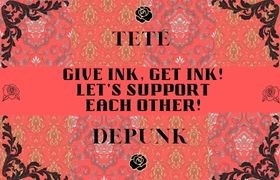
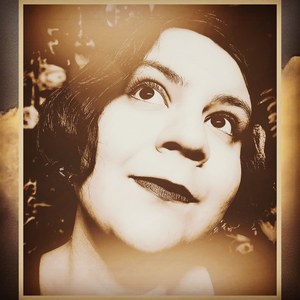
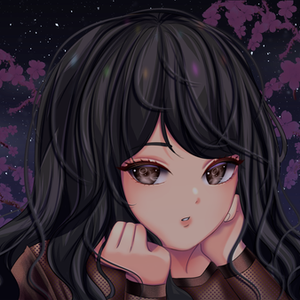







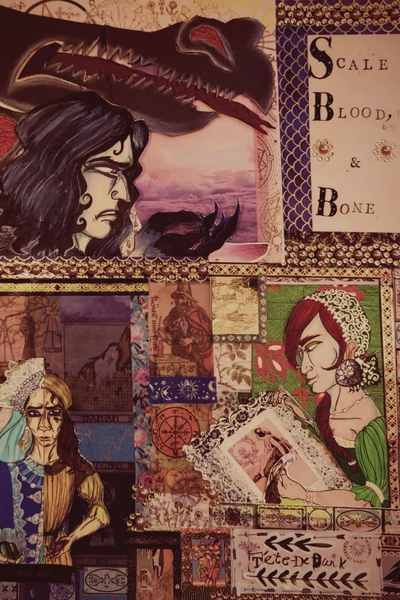
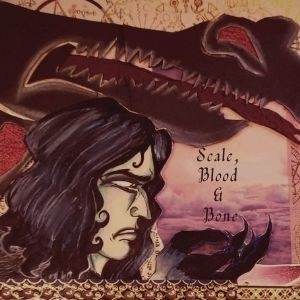
Comments (11)
See all